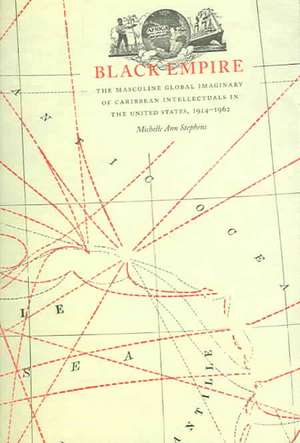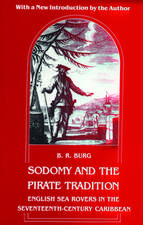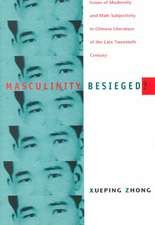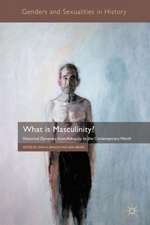Black Empire – The Masculine Global Imaginary of Caribbean Intellectuals in the United States, 1914–1962: New Americanists
Autor Michelle Ann Stephensen Limba Engleză Paperback – 17 iul 2005
Din seria New Americanists
-
 Preț: 265.41 lei
Preț: 265.41 lei -
 Preț: 240.90 lei
Preț: 240.90 lei -
 Preț: 231.99 lei
Preț: 231.99 lei -
 Preț: 265.02 lei
Preț: 265.02 lei -
 Preț: 264.05 lei
Preț: 264.05 lei -
 Preț: 337.24 lei
Preț: 337.24 lei -
 Preț: 262.32 lei
Preț: 262.32 lei -
 Preț: 268.31 lei
Preț: 268.31 lei -
 Preț: 310.83 lei
Preț: 310.83 lei -
 Preț: 260.19 lei
Preț: 260.19 lei -
 Preț: 263.47 lei
Preț: 263.47 lei -
 Preț: 206.44 lei
Preț: 206.44 lei -
 Preț: 262.91 lei
Preț: 262.91 lei -
 Preț: 260.96 lei
Preț: 260.96 lei -
 Preț: 305.83 lei
Preț: 305.83 lei -
 Preț: 236.66 lei
Preț: 236.66 lei -
 Preț: 231.12 lei
Preț: 231.12 lei -
 Preț: 301.59 lei
Preț: 301.59 lei -
 Preț: 302.96 lei
Preț: 302.96 lei -
 Preț: 263.47 lei
Preț: 263.47 lei -
 Preț: 311.01 lei
Preț: 311.01 lei -
 Preț: 303.88 lei
Preț: 303.88 lei -
 Preț: 303.88 lei
Preț: 303.88 lei -
 Preț: 309.49 lei
Preț: 309.49 lei -
 Preț: 268.68 lei
Preț: 268.68 lei -
 Preț: 302.36 lei
Preț: 302.36 lei -
 Preț: 231.00 lei
Preț: 231.00 lei -
 Preț: 231.12 lei
Preț: 231.12 lei -
 Preț: 262.32 lei
Preț: 262.32 lei -
 Preț: 232.14 lei
Preț: 232.14 lei -
 Preț: 263.47 lei
Preț: 263.47 lei -
 Preț: 303.72 lei
Preț: 303.72 lei -
 Preț: 239.54 lei
Preț: 239.54 lei -
 Preț: 315.08 lei
Preț: 315.08 lei -
 Preț: 304.86 lei
Preț: 304.86 lei -
 Preț: 242.06 lei
Preț: 242.06 lei -
 Preț: 300.62 lei
Preț: 300.62 lei -
 Preț: 308.33 lei
Preț: 308.33 lei -
 Preț: 301.59 lei
Preț: 301.59 lei -
 Preț: 241.29 lei
Preț: 241.29 lei -
 Preț: 266.18 lei
Preț: 266.18 lei -
 Preț: 266.77 lei
Preț: 266.77 lei -
 Preț: 266.18 lei
Preț: 266.18 lei -
 Preț: 262.32 lei
Preț: 262.32 lei -
 Preț: 394.23 lei
Preț: 394.23 lei -
 Preț: 238.39 lei
Preț: 238.39 lei -
 Preț: 264.64 lei
Preț: 264.64 lei -
 Preț: 236.13 lei
Preț: 236.13 lei
Preț: 305.83 lei
Nou
Puncte Express: 459
Preț estimativ în valută:
58.52€ • 61.10$ • 48.43£
58.52€ • 61.10$ • 48.43£
Carte tipărită la comandă
Livrare economică 05-19 aprilie
Preluare comenzi: 021 569.72.76
Specificații
ISBN-13: 9780822335887
ISBN-10: 0822335883
Pagini: 384
Ilustrații: 5 b&w photographs
Dimensiuni: 158 x 231 x 27 mm
Greutate: 0.61 kg
Editura: MD – Duke University Press
Seria New Americanists
ISBN-10: 0822335883
Pagini: 384
Ilustrații: 5 b&w photographs
Dimensiuni: 158 x 231 x 27 mm
Greutate: 0.61 kg
Editura: MD – Duke University Press
Seria New Americanists
Recenzii
Black Empire is a remarkable achievement, a comprehensive account of the global cognitive remapping of the Atlantic world by its traveling black subjects. This is a theoretically sophisticated and conceptually innovative study of West Indian intellectuals who confronted and shaped the geopolitical realities of the modern and modernizing world and refused to be limited by the historical terms, conditions, and discourses of national identity. Michelle Ann Stephens has produced a pathbreaking account of their response to migrancy, transnationalism, gender, and empire. An invaluable book for everyone in Atlantic studies, the study of the Americas, black studies, ethnic studies, and gender studies.Hazel V. Carby, author of Race MenIn this strikingly original and rich study, Michelle Ann Stephens makes wonderful use of geography to remap early-twentieth-century black nationalism beyond the confines of national boundaries. With great acuity, she shows how three different radical Caribbean intellectuals imagined an international black empire that extended from the Americas to Africa and Europe. Black Empire brings a genuinely new perspective to bear on the complex interconnections of citizenship and Diaspora, gender and freedom, race and sovereignty.Amy Kaplan, author of The Anarchy of Empire in the Making of U.S. Culture"A remarkable overview of visionary black leadership in the early 20th century. . . . Recommended."A. J. Guillaume Jr., ChoiceBlack Empire advances an argument arced with poetic political justice: the isles that endured the most sustained suffering at the hands of a racist imperialism cultivated its most biting critics.Harvey Neptune, Small AxeThis impressive volume is both wide-ranging and intellectually challenging as Stephens interrogates the contribution of a range of under-researched authors and works to the creation of a black federation within a transnational framework.Celeste-Marie Bernier, Atlantic Studies
Notă biografică
Michelle Ann Stephens
Textul de pe ultima copertă
"In this strikingly original and rich study, Michelle Ann Stephens makes wonderful use of geography to remap early-twentieth-century black nationalism beyond the confines of national boundaries. With great acuity, she shows how three different radical Caribbean intellectuals imagined an international black empire that extended from the Americas to Africa and Europe. "Black Empire" brings a genuinely new perspective to bear on the complex interconnections of citizenship and Diaspora, gender and freedom, race and sovereignty."--Amy Kaplan, author of "The Anarchy of Empire in the Making of U.S. Culture"
Cuprins
Acknowledgments xi
Introduction: The Isles and Empire 1
Part I: Blackness and Empire: The World War I Moment 33
1. The New Worldly Negro: Sovereignty, Revolutionary Masculinity, and American Internationalism 35
2. The Women of Color and the Literature of a New Black World 56
3. Marcus Garvey, Black Emperor 74
4. The Black Star Line and the Negro Ship of State 102
Part II: Mapping New Geographies of History 127
5. Claude McKay and Harlem, Black Belt of the Metropolis 129
6. "Nationality Doubtful" and Banjo's Crew in Marseilles 167
7. C. L. R. James and the Fugitive Slave in American Civilization 204
8. America is One Island Only: The Caribbean and American Studies 241
Conclusion: Dark Waters: Shadow Narratives of U. S. Imperialism 269
Notes 283
Bibliography 337
Index 353
Introduction: The Isles and Empire 1
Part I: Blackness and Empire: The World War I Moment 33
1. The New Worldly Negro: Sovereignty, Revolutionary Masculinity, and American Internationalism 35
2. The Women of Color and the Literature of a New Black World 56
3. Marcus Garvey, Black Emperor 74
4. The Black Star Line and the Negro Ship of State 102
Part II: Mapping New Geographies of History 127
5. Claude McKay and Harlem, Black Belt of the Metropolis 129
6. "Nationality Doubtful" and Banjo's Crew in Marseilles 167
7. C. L. R. James and the Fugitive Slave in American Civilization 204
8. America is One Island Only: The Caribbean and American Studies 241
Conclusion: Dark Waters: Shadow Narratives of U. S. Imperialism 269
Notes 283
Bibliography 337
Index 353
Descriere
Explores the writings of Marcus Garvey, Claude McKay and C.L.R. James and argues that these black transnationals articulated a novel conception of black identity that reconfigures the meaning of American nationality










